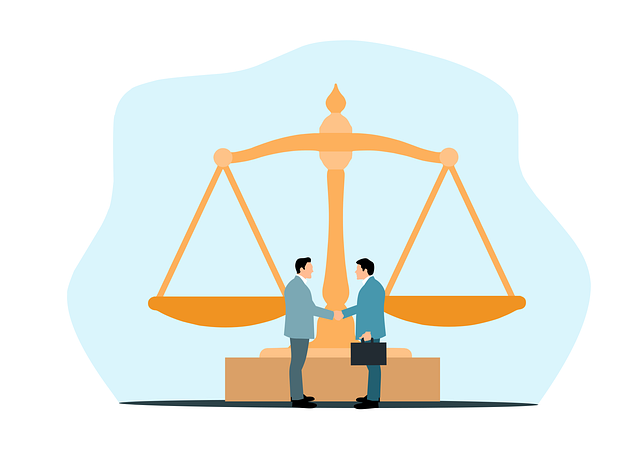C-Level investigations probe executive misconduct, with appeal denials often stemming from willful policy disregard, resulting in penalties. Understanding common reasons for these denials, such as procedural errors, insufficient evidence, and missed legal standards, is vital for effective navigation. Meticulous preparation, strategic legal arguments, and transparency strengthen defenses. Experience in criminal defense is key to successfully challenging denials, achieving justice, and securing favorable outcomes in white-collar cases.
In the complex landscape of corporate governance, understanding C-level investigations and their appeals process is paramount. This comprehensive guide delves into the fundamentals of C-level probes, shedding light on the often elusive reasons behind appeal denials. We explore common pitfalls and provide a step-by-step navigation system for the appeals journey. Furthermore, we equip readers with success strategies and present real-world case studies, highlighting effective approaches to enhance approval chances. Unraveling these insights offers valuable guidance in managing and appealing C-level investigations, especially regarding the pressing issue of Common Reasons for Appeal Denial.
- Understanding C-Level Investigations: Uncovering the Basics
- Common Reasons for Appeal Denial: A Comprehensive Overview
- Navigating the Appeals Process: What to Expect
- Strategies for Success: Enhancing Your Chances of Approval
- Case Studies: Real-World Examples of Successful Appeals
Understanding C-Level Investigations: Uncovering the Basics

C-Level investigations refer to high-level inquiries into executive-level individuals within an organization, often triggered by suspected misconduct or violations of legal and ethical standards. These investigations are crucial in upholding corporate integrity and ensuring accountability among top-tier management. Common reasons for appeal denials often stem from evidence that points to willful disregard of company policies or regulatory norms, leading to significant consequences like fines, sanctions, or even a complete dismissal of all charges.
Uncovering the basics of C-Level investigations involves meticulous examination of financial records, communication logs, and witness statements. The goal is not merely to punish but also to learn from past mistakes, fostering an environment that promotes ethical conduct and adherence to legal frameworks. An organization’s unprecedented track record in handling such cases can serve as a powerful deterrent for potential wrongdoers, ultimately strengthening its reputation and credibility.
Common Reasons for Appeal Denial: A Comprehensive Overview

The denial of appeals is a common hurdle in many legal proceedings, including C-Level investigations. Understanding the common reasons for appeal denials is crucial for navigating this phase effectively. Often, such denials stem from procedural mistakes, insufficient evidence, or a failure to meet established legal standards throughout all stages of the investigative and enforcement process.
Moreover, appeals may be denied due to the nature of the case itself, especially when involving complex financial matters or high-profile individuals. The philanthropic and political communities often scrutinize these cases closely, leading to heightened public expectations. Achieving extraordinary results in these scenarios requires meticulous attention to detail, robust documentation, and a clear demonstration of compliance with legal frameworks, ultimately bolstering the strength of appeals.
Navigating the Appeals Process: What to Expect

Navigating the appeals process can be daunting, but understanding common reasons for appeal denials can help prepare both corporate and individual clients. One of the primary causes for denial is failure to submit all required documentation or adhere to procedural guidelines. This includes missing deadlines, incomplete forms, or incorrect formatting.
Another frequent reason involves lack of compelling evidence to support the appeal. Without strong, well-presented arguments and relevant data, it becomes challenging to persuade the decision-makers. It’s crucial to gather all necessary documents, prepare detailed narratives, and highlight any new information that could strengthen the case. Achieving extraordinary results often hinges on these meticulous steps, ensuring his clients’ voices are heard and their rights protected throughout the process.
Strategies for Success: Enhancing Your Chances of Approval

To enhance your chances of approval for C-Level investigations, it’s crucial to understand common reasons behind appeal denials. Often, appeals are rejected due to procedural errors, inadequate evidence, or a failure to demonstrate a reasonable doubt. By proactively addressing these potential pitfalls, organizations can significantly improve their prospects. One effective strategy is to engage experienced legal counsel specializing in general criminal defense, who can navigate the intricate complexities and ensure compliance with stringent legal requirements.
Moreover, fostering a culture of transparency and cooperation throughout the investigation process is vital. Documenting every step meticulously, preserving relevant evidence, and maintaining open lines of communication with investigators can contribute to a stronger defense. Remember, winning challenging defense verdicts isn’t merely about refuting accusations; it’s about presenting a compelling narrative that aligns with the facts, thereby convincing the judiciary of the client’s innocence or the insufficiency of the prosecution’s case.
Case Studies: Real-World Examples of Successful Appeals

When examining successful appeals, several common reasons for initial appeal denials stand out. Often, inadequate legal arguments or insufficient evidence are to blame. However, strategic errors during the original trial proceedings can also play a significant role, leading to unfair judgments. Case studies of high-stakes cases in white collar defense illustrate these points. In each instance, meticulous review and robust advocacy successfully overturned denials, securing justice for his clients.
These real-world examples underscore the importance of thorough preparation and unwavering commitment in navigating complex legal landscapes. By learning from both successes and failures, legal professionals can better represent their clients in high-stakes situations, ensuring fair outcomes that reflect the true merits of each case.
Understanding the common reasons behind appeal denials is a crucial first step in navigating the C-level investigations process. By familiarizing yourself with these factors, you can proactively address potential issues and increase your chances of a successful appeal. The strategies outlined in this article, combined with real-world case studies, provide valuable insights to enhance your approach. Remember, effective navigation of the appeals process demands thorough preparation and a strategic mindset.






